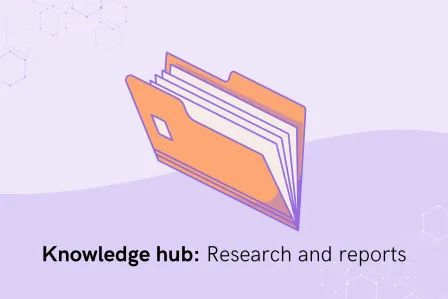Understanding teachers' perspectives on AI in Education (AIEd) is crucial for its effective integration into the educational framework. This paper aims to explore how teachers currently use AI and how it can enhance the educational process. We conducted a cross-national study spanning Greece, Hungary, Latvia, Ireland, and Armenia, surveying 1754 educators through an online questionnaire, addressing three research questions. Our first research question examines educators' understanding of AIEd, their skepticism, and its integration within schools. Most educators report a solid understanding of AI and acknowledge its potential risks. AIEd is primarily used for educator support and engaging students. However, concerns exist about AI's impact on fostering critical thinking and exposing students to biased data. The second research question investigates student engagement with AI tools from educators' perspectives. Teachers indicate that students use AI mainly to manage their academic workload, while outside school, AI tools are primarily used for entertainment. The third research question addresses future implications of AI in education. Educators are optimistic about AI's potential to enhance educational processes, particularly through personalized learning experiences. Nonetheless, they express significant concerns about AI's impact on cultivating critical thinking and ethical issues related to potential misuse. There is a strong emphasis on the need for professional development through training seminars, workshops, and online courses to integrate AI effectively into teaching practices. Overall, the findings highlight a cautious optimism among educators regarding AI in education, alongside a clear demand for targeted professional development to address concerns and enhance skills in using AI tools.
Methodology
The survey was conducted between October 2023 and March 2024 by the Greek Safer Internet Center of FORTH, in collaboration with the Safer Internet Centers of Hungary, Ireland, Latvia, and Armenia, and supported by the European Network of Safer Internet Centers (Insafe). Data were collected anonymously through online questionnaires distributed via the EUSurvey platform, ensuring accessibility in accordance with WCAG 2.0 Level AA standards. Educators from the participating countries were invited to complete the questionnaire, with the Greek sample also distributed through the Panhellenic School Network. The survey, available in each country's national language, informed participants about voluntary and anonymous participation. A total of 1,754 educators responded: 64% from Greece, 17% from Hungary, 7% from Ireland, 4% from Latvia, and 7% from Armenia.
The questionnaire, consisting of 33 questions (17 multiple-choice, 2 Likert scale, 8 open-ended, and 6 demographic), explored educators' demographics, current uses and perceptions of AI in education (AIEd), and expectations for its future impact. Data analysis was conducted using SPSS version 29.0, with statistical assumptions checked prior to analysis.
Country or region of researched population
Armenia, Greece, Hungary, Ireland, Latvia
Record created:
28 August 2024
Understanding teachers' perspectives on AI in Education (AIEd) is crucial for its effective integration into the educational framework. This paper aims to explore how teachers currently use AI and how it can enhance the educational process. We conducted a cross-national study spanning Greece, Hungary, Latvia, Ireland, and Armenia, surveying 1754 educators through an online questionnaire, addressing three research questions. Our first research question examines educators' understanding of AIEd, their skepticism, and its integration within schools. Most educators report a solid understanding of AI and acknowledge its potential risks. AIEd is primarily used for educator support and engaging students. However, concerns exist about AI's impact on fostering critical thinking and exposing students to biased data. The second research question investigates student engagement with AI tools from educators' perspectives. Teachers indicate that students use AI mainly to manage their academic workload, while outside school, AI tools are primarily used for entertainment. The third research question addresses future implications of AI in education. Educators are optimistic about AI's potential to enhance educational processes, particularly through personalized learning experiences. Nonetheless, they express significant concerns about AI's impact on cultivating critical thinking and ethical issues related to potential misuse. There is a strong emphasis on the need for professional development through training seminars, workshops, and online courses to integrate AI effectively into teaching practices. Overall, the findings highlight a cautious optimism among educators regarding AI in education, alongside a clear demand for targeted professional development to address concerns and enhance skills in using AI tools.
Methodology
The survey was conducted between October 2023 and March 2024 by the Greek Safer Internet Center of FORTH, in collaboration with the Safer Internet Centers of Hungary, Ireland, Latvia, and Armenia, and supported by the European Network of Safer Internet Centers (Insafe). Data were collected anonymously through online questionnaires distributed via the EUSurvey platform, ensuring accessibility in accordance with WCAG 2.0 Level AA standards. Educators from the participating countries were invited to complete the questionnaire, with the Greek sample also distributed through the Panhellenic School Network. The survey, available in each country's national language, informed participants about voluntary and anonymous participation. A total of 1,754 educators responded: 64% from Greece, 17% from Hungary, 7% from Ireland, 4% from Latvia, and 7% from Armenia.
The questionnaire, consisting of 33 questions (17 multiple-choice, 2 Likert scale, 8 open-ended, and 6 demographic), explored educators' demographics, current uses and perceptions of AI in education (AIEd), and expectations for its future impact. Data analysis was conducted using SPSS version 29.0, with statistical assumptions checked prior to analysis.
Country or region of researched population
Armenia, Greece, Hungary, Ireland, Latvia
Record created:
28 August 2024- artificial intelligence (AI) education media education Teacher Training


